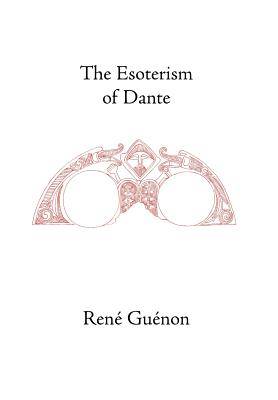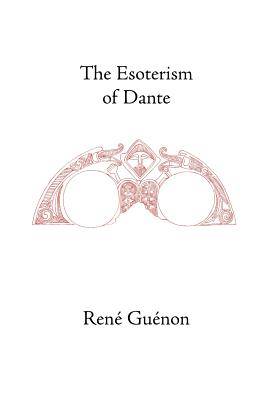
- Retrait gratuit dans votre magasin Club
- 7.000.000 titres dans notre catalogue
- Payer en toute sécurité
- Toujours un magasin près de chez vous
- Retrait gratuit dans votre magasin Club
- 7.000.0000 titres dans notre catalogue
- Payer en toute sécurité
- Toujours un magasin près de chez vous
27,95 €
+ 55 points
Format
Description
Especially since the Renaissance, some in Western Christendom have suspected that the deeper dimension of their tradition has somehow been lost, and have therefore sought to discover, or create, an 'esoteric' or 'initiatic' Christianity. In the middle of the nineteenth century two scholars, Gabriele Rossetti and Eugène Aroux, pointed to certain esoteric meanings in the work of Dante Alighieri, notably The Divine Comedy. Partly based on their scholarship, Guénon in 1925 published The Esoterism of Dante. From the theses of Rosetti and Aroux, Guénon retains only those elements that prove the existence of such hidden meanings; but he also makes clear that esoterism is not 'heresy' and that a doctrine reserved for an elite can be superimposed on the teaching given the faithful without standing in opposition to it. One of René Guénon's lifelong quests was to discover, or revive, the esoteric, initiatory dimension of the Christian tradition. In the present volume, along with its companion volume Insights into Christian Esoterism (which includes the separate study Saint Bernard), Guénon undertakes to establish that the three parts of The Divine Comedy represent the stages of initiatic realization, exploring the parallels between the symbolism of the Commedia and that of Freemasonry, Rosicrucianism, and Christian Hermeticism, and illustrating Dante's knowledge of traditional sciences unknown to the moderns: the sciences of numbers, of cosmic cycles, and of sacred astrology. In these works Guénon also touches on the all-important question of medieval esoterism and discusses the role of sacred languages and the principle of initiation in the Christian tradition, as well as such esoteric Christian themes and organizations as the Holy Grail, the Guardians of the Holy Land, the Sacred Heart, the Fedeli d'Amore and the 'Courts of Love', and the Secret Language of Dante. In addition to Dante, various other paths toward a possible Christian esoterism have been explored by many investigators-the legend of the Holy Grail, the Knights Templars, the tradition of Courtly Love, Freemasonry, Rosicrucianism, and Christian Hermeticism-and Guénon deals with all of these in the present volume as well as his Insights into Christian Esoterism. In the latter, one chapter in particular, 'Christianity and Initiation', will be of special interest with regard to the history of the Traditionalist School. When first published as an article, it gave rise to some controversy because Guénon here reaffirmed his denial of the efficacy of the Christian sacraments as rites of initiation, a point of divergence between the teachings of Guénon and those of other key perennialist thinkers. Both The Esoterism of Dante and Insights into Christian Esoterism will be of inestimable value to all who are struggling to come to terms with the fullness of the Christian tradition.
Spécifications
Parties prenantes
- Auteur(s) :
- Editeur:
Contenu
- Nombre de pages :
- 108
- Langue:
- Anglais
Caractéristiques
- EAN:
- 9781597310581
- Date de parution :
- 16-05-05
- Format:
- Livre relié
- Format numérique:
- Genaaid
- Dimensions :
- 152 mm x 229 mm
- Poids :
- 317 g

Les avis
Nous publions uniquement les avis qui respectent les conditions requises. Consultez nos conditions pour les avis.






